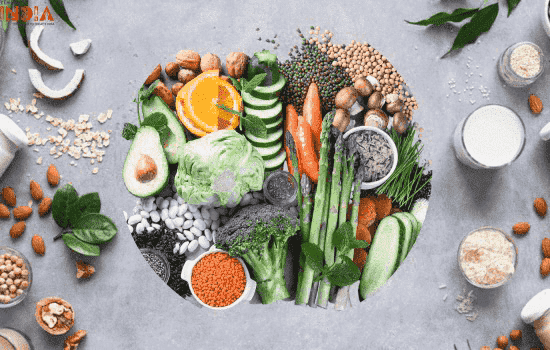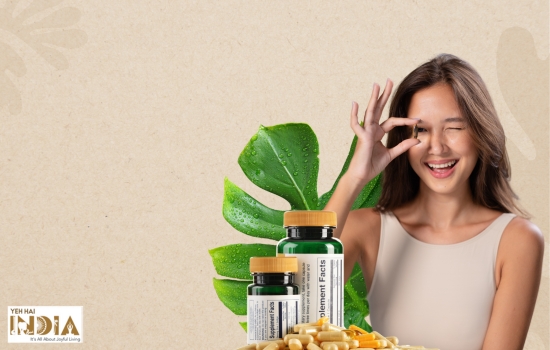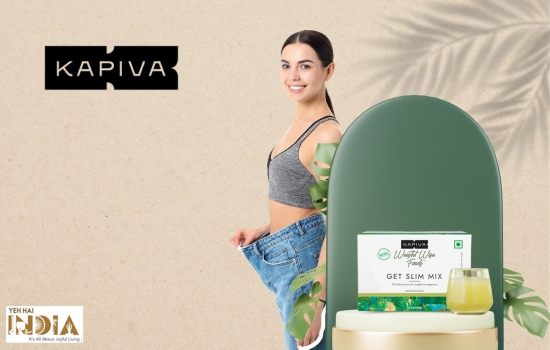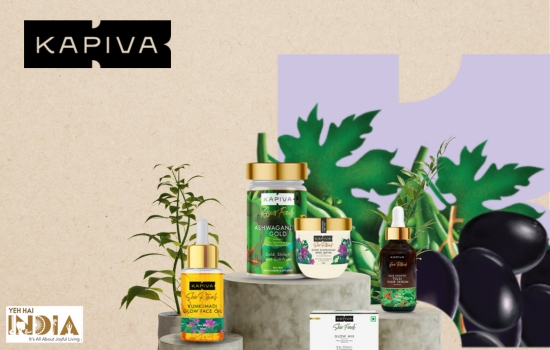Veganism or Plant Based diets seem to be the new ‘in thing’ and for good reason! For health, animal welfare, and religious reasons even.
There is a perception around Plant based diets- that vegans or vegetarians- have greater difficult time getting enough protein, essential vitamins and minerals. However, In 2016, the Academy of Nutrition and Dietetics determined that a vegetarian or vegan diet can meet all the nutritional needs of adults, children, and pregnant or lactating women! All it requires is some planning….
So, If you are planning to adopt a plant based diet- here’s want you need to add to your diet.
- Chickpeas
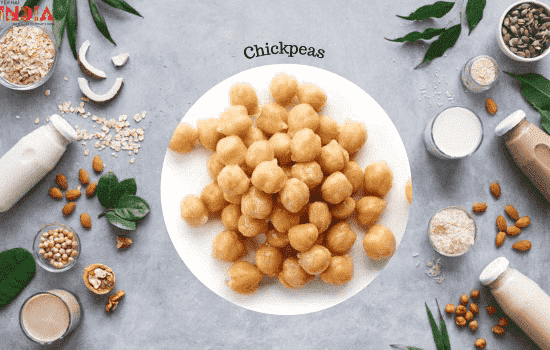
Chickpeas can be eaten hot or cold and are very versatile with many recipes available online. For example, they can be added to stews and curries, or flavored with paprika and roasted in the oven. A person can add hummus, which is made with chickpea paste, to a sandwich for a healthy, protein-rich alternative to butter.
Also, cooked chickpeas are rich in protein and contain about 7.25 grams per ½ cup.
Recommended Story – Sowing the seeds to a healthier lifestyle – Adopting a plant based diet
- Chia Seeds
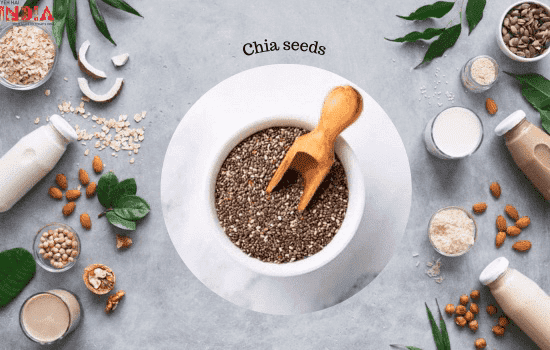
Chis seeds are low-calorie foods high in fiber and heart-healthy omega-3 fatty acids. Chia seeds are a complete source of protein containing 2 grams of protein per tablespoon.
Try adding chia seeds to a smoothie, sprinkling them over a plant-based yogurt, or dipping them in water or almond milk to make a pudding. chia seeds are available in some supermarkets, health food stores, or online.
- Farro
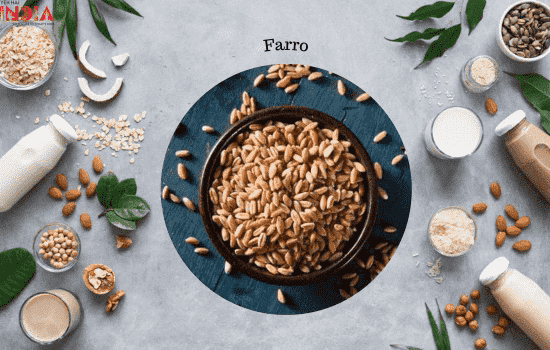
Farro is one of the lesser known “old grains” and should be on your radar. A quarter cup of raw Farro contains 6 grams of protein. Its toothy texture makes cereal bowls and salads pleasant to chew on.
- Seitan
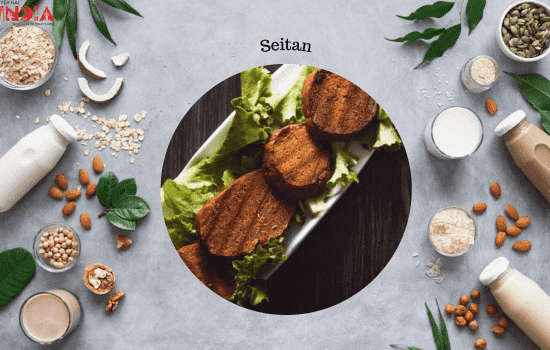
Seitan is a complete protein made from a mixture of wheat gluten with various spices. The high wheat content means that people with celiac disease or gluten intolerance should avoid it. For others, it can be a healthy, protein-rich meat substitute.
Also, if cooked in soy sauce, which is rich in the amino acid lysine, seitan becomes a complete source of protein at 21g per 1/3 cup.
- Lentils
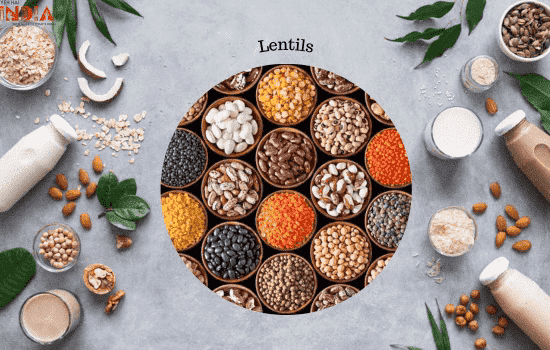
Red or green lentils are rich in protein, fiber, and important nutrients, such as iron and potassium.
Moreover, cooked lentils contain 8.84 grams of protein per ½ cup. Lentils are a great source of protein for lunch or dinner. They can be added to stews, curries, salads, or rice for an extra helping of protein.
- Quinoa
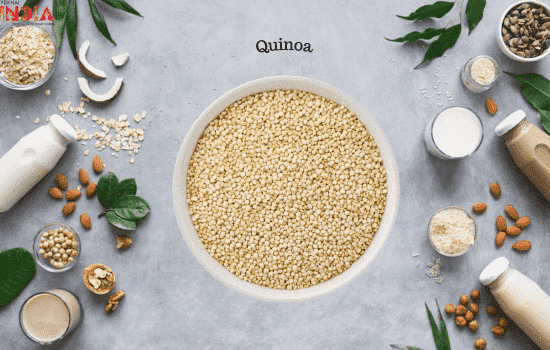
Quinoa is the trendiest grain (well, it’s technically a seed) and it’s a great source of protein to use as the base of any meatless meal. A cup of cooked quinoa contains approximately 8 grams of protein.
It’s also rich in magnesium, fibre, iron, etc.
- Broccoli
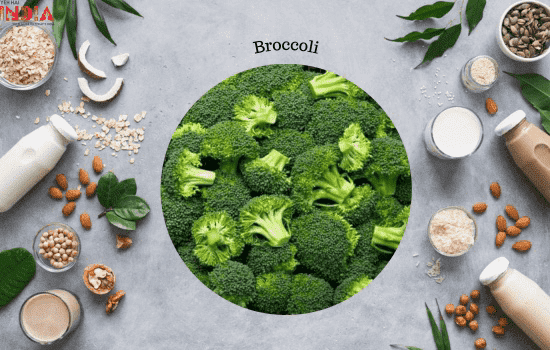
One of the most popular vegetables is also one of the richest in protein, as a cup of cooked broccoli has 2.5 grams of protein. Grill, sauté, or steam for a quick and nutritious side dish.
- Peanuts
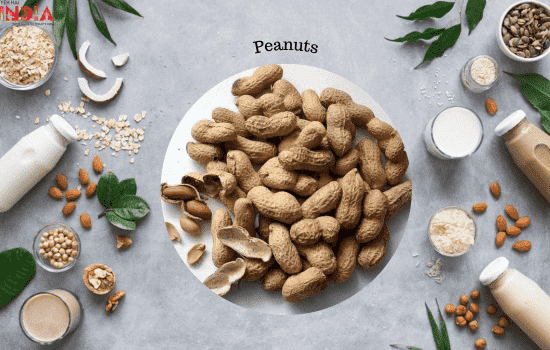
Peanuts are high in protein, full of healthy fats, and can improve heart health. They contain about 20.5 grams of protein per ½ cup.
Peanut butter is also high in protein at 3.6g per tablespoon, making peanut butter sandwiches a healthy, protein-packed snack. Some people also prefer fruits with peanut butter as their pre-workout snack.
- Hemp Seeds
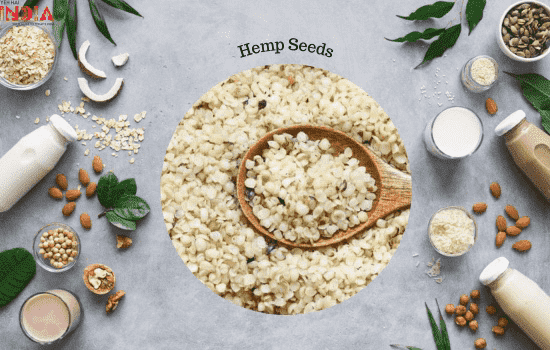
Hemp seeds are promoted as a “superfood.” They also have a subtle nutty flavor that is similar to pine nuts. When baking, hemp seeds can be used as a substitute for walnuts, but can also be added to smoothies, with 2 scoops containing over 6 grams of protein.
- Mung Beans
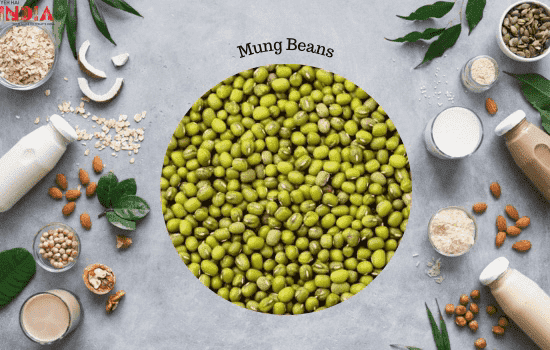
Mung Beans are primarily grown in East and Southeast Asia. They are often used as a base for stews, vegetable cakes, or dal. One cup of cooked mung beans contains 14 grams of protein. Note: Mung beans are drier than cooked and easier to find canned.
- Jackfruit
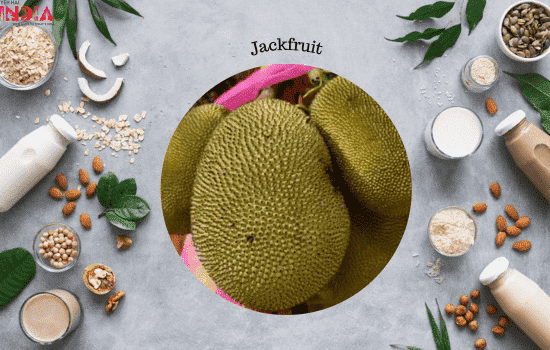
Jackfruit is often marketed as a plant-based alternative to pulled pork, with a meaty, stringy texture suitable for sandwiches and faux barbeque platters.
Jackfruit is rarely sold whole, but there are a handful of brands that sell jackfruit-containing products in the refrigerated section of supermarkets. Jackfruit isn’t the most protein-rich item on this list, but it still packs 3 grams per cup.
Recommended Story – 10 Low Sugar Fruits and Vegetables Good For A Low Carb Diet
- Tofu
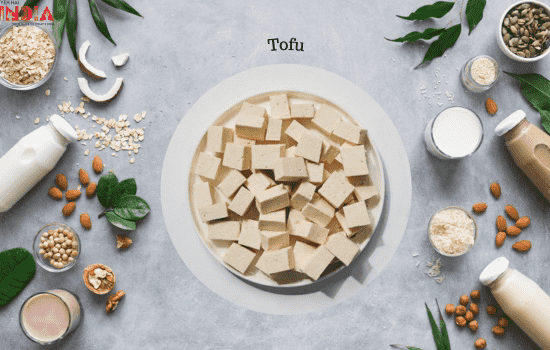
Soy products are among the richest sources of protein in a plant-based diet. The protein content varies depending on how the soy is prepared. Firm tofu (bean curd) contains about 10 grams of protein per ½ cup.
Tofu takes on the flavor of the dish in which it is prepared, so it can be added to a meal in many ways. People can consume tofu as a meat substitute in their favorite sandwich or soup. Tofu is also a popular meat substitute in some dishes such as kung pao chicken. These soy products also contain good amounts of calcium and iron, making them a healthy substitute for dairy products
- Edamame
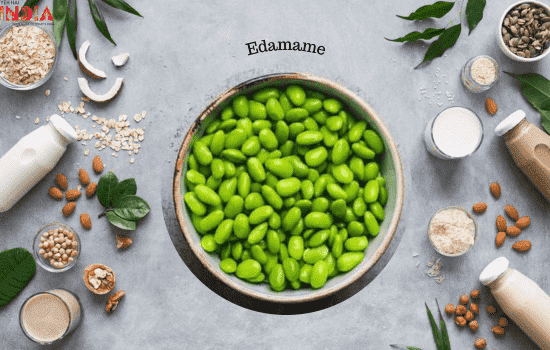
Edamame is popular in Japan and other parts of East Asia. It comes as close to the perfect meal as possible. One cup of cooked edamame contains 8 grams of fiber, 17 grams of protein, and is only 189 calories.
- Kidney Beans
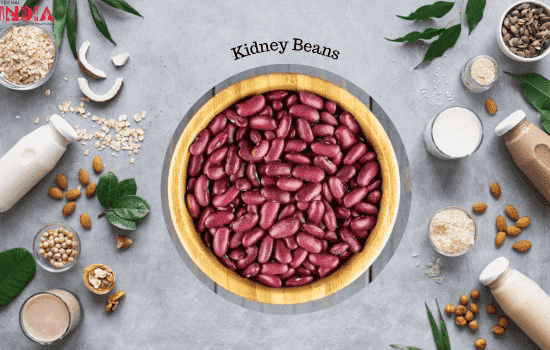
These heavy beans are dense, nutritious, and rich in nutrients. One cup of cooked kidney beans contains about 13 grams of protein (plus 13 grams of fiber).
- Oatmeal
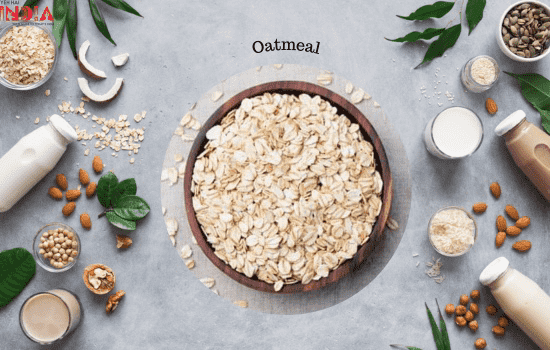
One cup of cooked oatmeal contains 6 grams of protein. You can pair it with a tablespoon of peanut butter and a pinch of hemp or chia seeds for a high-protein breakfast.
- Soy Milk
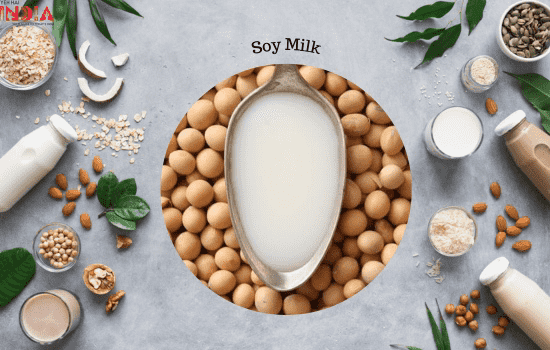
The market for dairy-free nut milk has exploded in recent years, but soy milk is still the most nutritious option. One cup of soy milk contains 8 grams of protein, making it an excellent base for shakes and shakes.
- Sunflower Seeds
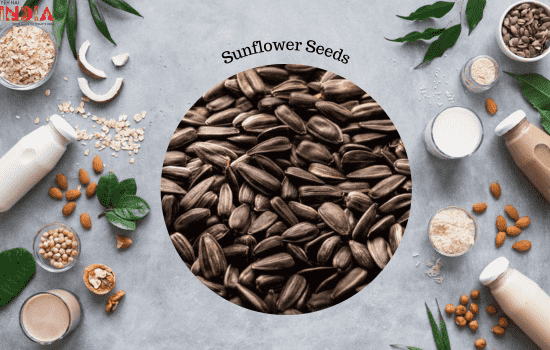
Who would have thought that the innocent sunflower seed could have so much protein? Half a cup of sunflower seeds contains 15 grams of protein. It can be an excellent quick and nutritious snack.
- Spirulina
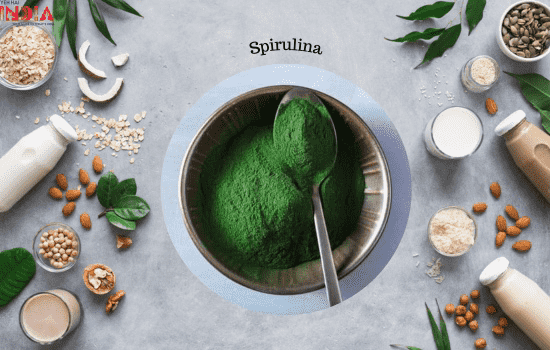
Spirulina are blue or green algae that contain around 8g of protein per 2 tablespoons. It is also high in nutrients like iron, B vitamins, though not B12, and manganese.
Spirulina is available online as a powder or supplement. It can be added to water, smoothies, or fruit juices. A person can also sprinkle it on salads or sandwiches to increase the overall protein content.
- Sprouted Bread
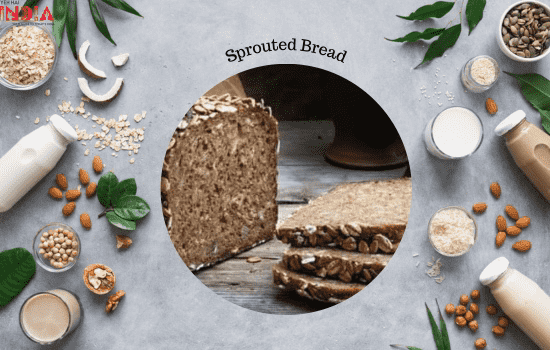
Sprouted bread is a specific category of bread made from grains that are allowed to germinate before being ground into flour (also known as sprouts).
Ezekiel bread, a popular brand of sprouted bread, contains 4 grams of protein and only 80 calories per slice.
- Plant-based Meat
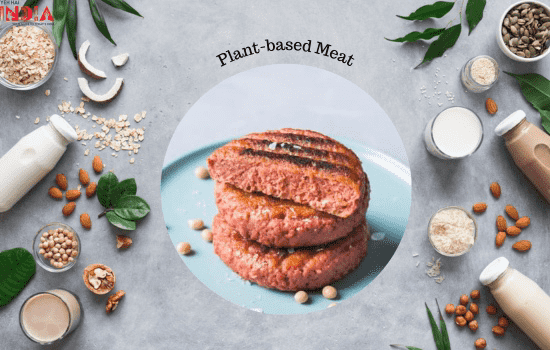
Who thought one could experience the taste of meat without having meat? Well, there are many quick-service chain restaurants offering versions of their classic menus with different types of plant-based meat.
Also, Bollywood actors Genelia and Riteish Deshmukh recently launched their vegan meat Startup named as ‘Imagine Meats’ in Mumbai. The Startup provides vegan versions of Indian meat dishes. You must check out their website. It will leave you stunned.
Recommended Story – Veganism- How are Indians adapting to this diet?


